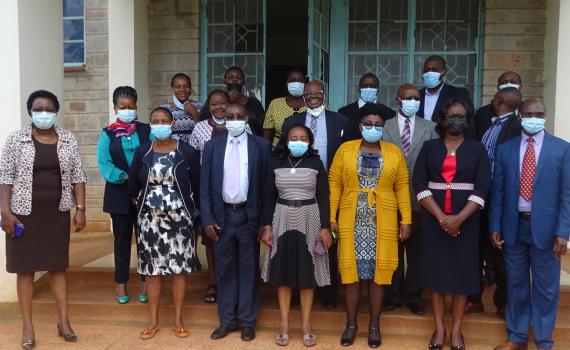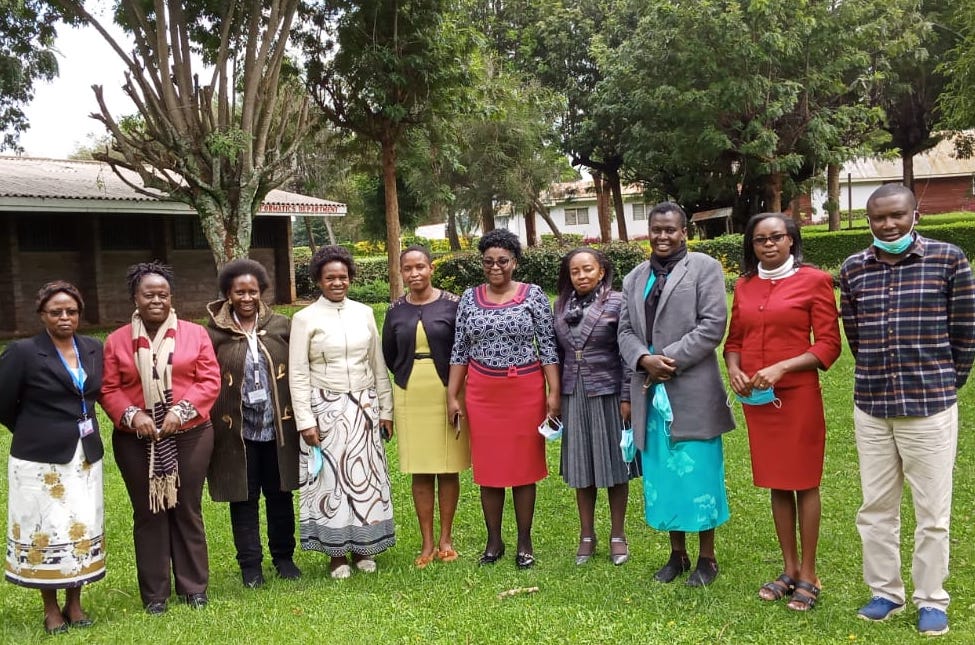
Open access is forging ahead in Kenya, where five more universities have drafted open access policies, four have launched open access repositories, and one has launched an open access publishing platform, as a result of a project led by EIFL and our partner consortium, the Kenya Libraries and Information Services Consortium (KLISC).
The project, titled ‘Institutional and national open access and open science roadmaps and training in Ethiopia, Kenya and Uganda’, was funded by SPIDER (the Swedish Programme for ICT in Developing Regions DSV, Department of Computer and System Sciences, Stockholm University). It was a continuation of previous EIFL-KLISC projects, also funded by SPIDER, from 2013 to 2019, to advance open access in East Africa.
In June and July 2021, KLISC organized workshops on open access policies, repositories and journals for university senior managers, deans and directors, researchers, librarians, ICT and other technical staff at five KLISC institutions: Amref International University, Alupe University College (AUC), Chuka University, Laikipia University and University of Kabianga.
OPEN ACCESS REPOSITORIES
In just two months, during the project, four more universities - Amref, AUC, Kabianga, and Laikipia - launched open access repositories, opening their research to the world. The fifth university, Chuka, already had a repository with more than 8,600 publications.
The EIFL-KLISC team trained teams of repository managers - a total of 22 people - to manage and maintain repositories at all five universities. Training included identifying content to be deposited, harvesting content, understanding publisher copyright policies and content uploading processes, in addition to technical maintenance. The new repositories are now being populated with research outputs.
AUC Deputy Principal (Academic, Research and Student Affairs), Professor Barasa, and University of Kabianga Dean of Agricultural Sciences and Natural Resources, Dr Joseph Hitimana, said the establishment of the repository marked the beginning of a visibility journey for the university. AUC Deputy Principal (Administration, Finance and Development), Professor Emmy Kipsoi, said the university was looking forward to enriching research through the repository.
Since 2010, EIFL and KLISC have supported 60 universities to set up repositories and draft open access policies, and 45 of these have been registered in OpenDOAR (the Directory of Open Access Repositories).
OPEN ACCESS POLICIES
All five universities have drafted institutional open access policies, mandating deposit of all research outputs, such as journal articles, theses and dissertations, in the new institutional repositories.
In his welcoming remarks, Amref International University Deputy Vice-Chancellor Professor Anselimo Makokha said that the university’s mandate included knowledge generation and this knowledge needed to be shared, particularly with communities.
With EIFL support, a total of 21 Kenyan universities have adopted open access policies, and many more have drafted policies.
OPEN ACCESS JOURNALS
During the project, Chuka University set up an open access journal publishing platform using Open Journals System free and open source software. The university will be publishing their Journal of Environmental Sustainability Advancement Research (JESAR) in open access.
Chuka University Deputy Vice Chancellor (Administration, Finance, Planning and Development) Professor Zachary Waita said that unlike in the past when publishing was limited, currently everyone could share their research and get feedback from the research community via broader open peer review.
And there is another open access journal publishing platform in the pipeline, at Amref International University, for their Africa Health Agenda International Journal.
SHARE / PRINT









